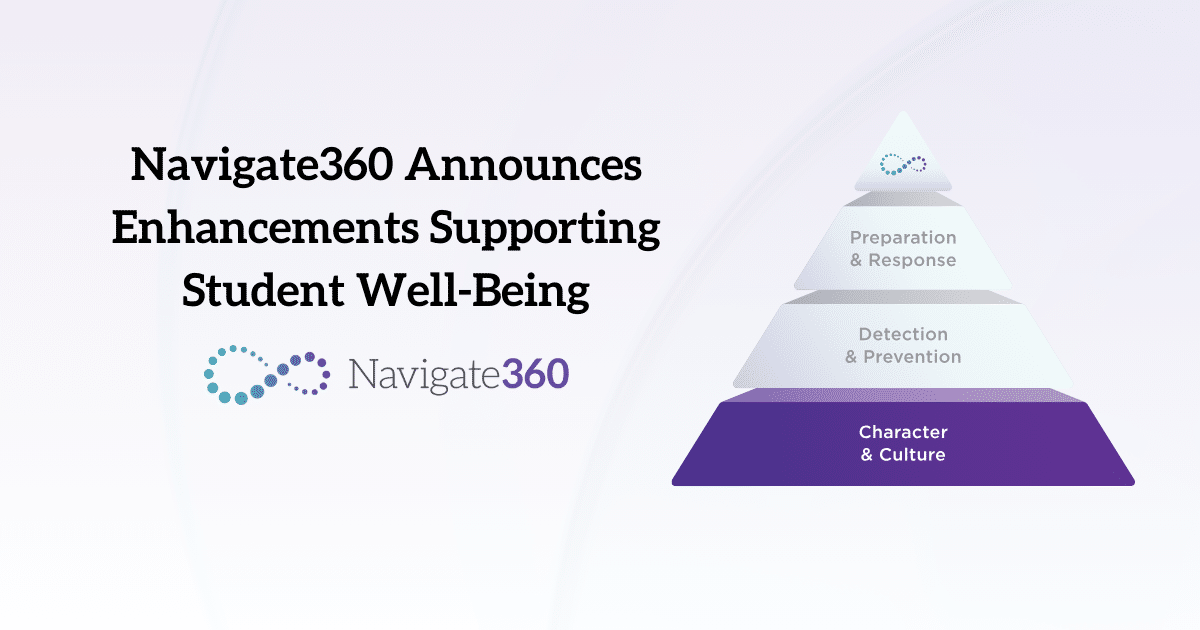The Importance of a Holistic Approach to Supporting Student Well-Being
Nurturing the mental health of students is a critical component of supporting student well-being and academic success. The impact of mental health challenges on students is profound and far-reaching, influencing their ability to learn, interact, and thrive within the school environment. Recognizing this critical intersection, schools must embrace a holistic approach to address mental health challenges while prioritizing safety measures.
The Significance of Student Mental Health
The mental health of students significantly shapes their educational journey. Factors such as stress, anxiety, depression, trauma, and other mental health issues can impede their academic performance, social interactions, and emotional development. According to research, nearly one in five children in the United States experiences a mental health disorder in any given year, underscoring the prevalence and urgency of addressing these challenges.
Mental health directly impacts a student’s:
- Academic Performance: Persistent mental health challenges can lead to difficulties concentrating, reduced motivation, and an inability to focus, affecting academic achievement.
- Social Interaction: Students grappling with mental health issues might face challenges in forming and maintaining relationships, leading to social isolation and loneliness.
- Emotional Stability: Mental health problems can manifest in emotional instability, impacting a student’s ability to manage emotions and cope with stress.
Navigating Mental Health Challenges: A Holistic Approach
To effectively address mental health challenges among students, schools need a multi-faceted approach that integrates school-based mental health services and proactive safety solutions.
Schools must prioritize the integration of comprehensive mental health services tailored to students’ diverse needs, including school counselors, therapy, and accessible mental health resources. Coupled with proactive safety solutions like early detection programs and crisis intervention training, this approach creates a supportive ecosystem that not only identifies mental health concerns but also provides immediate and appropriate interventions.
By breaking down barriers to access and stigma surrounding mental health, schools can foster an environment where young people feel supported, understood, and equipped with the resources needed to navigate mental health challenges effectively.
Use Early Detection Tools
Utilizing technology to scan owned sources allows schools to proactively identify concerning behavior patterns or signals indicative of potential violence or self-harm among students. This approach enables early detection, intervention, and the provision of necessary support, emphasizing the crucial role of technology in safeguarding student well-being and preventing potentially harmful incidents.
Prioritize Behavioral Threat Assessment
Behavioral threat assessment involves assessing concerning behaviors and evaluating potential threats to school safety. By integrating mental health considerations into threat assessment protocols, schools can identify students in distress and provide them with appropriate mental health support while ensuring overall safety within the school community.
Utilize an Anonymous Tipline
An anonymous tipline is a vital resource for students to confidentially report safety concerns and mental health crises they might witness or experience. By offering anonymity, the tipline encourages individuals to seek help for themselves or others without fear of stigma, fostering a safer and more supportive school environment for everyone.
Implement Suicide Awareness and Prevention Training
This training equips educators and staff with the necessary tools to identify warning signs of suicidal ideation and provide appropriate support and resources. By fostering a culture of openness and understanding around mental health challenges, schools can create a supportive network for at-risk students.
Equip Teams With Case Management Software
Case management software is an essential tool that further enables schools to escalate warning signals, as well as document, assess, and track situations that raise concern. This software facilitates a proactive approach by streamlining communication among faculty, counselors, and administrators, ensuring timely interventions to support students’ well-being and academic success.
Prepare Students For the Future
Social-emotional learning (SEL) fosters a supportive environment that cultivates empathy, self-awareness, and responsible decision-making among students, preparing them not only for academic success but also for navigating life’s challenges effectively. By prioritizing SEL in schools, educators can empower students with crucial skills, nurturing a positive school culture that enhances mental health and social interactions, setting the stage for lifelong success and well-being.
Navigate360, Your Partner in Supporting Student Well-Being
At Navigate360, we understand that positive mental health is critical to student wellness and success, and we know that no single solution can adequately address the multifaceted challenges that schools face in supporting student well-being.
That’s why we offer a range of products and services designed to create safe and secure environments. Between our cutting-edge threat detection tools and comprehensive training programs, we provide the resources needed to identify, assess, and mitigate threats effectively. By embracing a holistic approach, schools can proactively tackle issues of mental health, self-harm, threats of violence, child abuse, sexual violence, substance use, bullying, hate speech, and beyond.
Contact us today to learn more about how we can help you support the safety and well-being of students on your campus.
Navigate360 Threat Detection & Prevention Solutions
Ensuring the safety and wellbeing of your school community is a top priority for all school leaders. In an ever-changing environment with continually emerging threats and hazards, however, simply responding after a critical incident takes place isn’t enough.
Navigate360’s threat detection and prevention solutions help you proactively address concerning student behaviors while providing crucial support to those in crisis. Download the complete guide now to learn more about how these solutions work better together to support student wellness and success on your campus.



